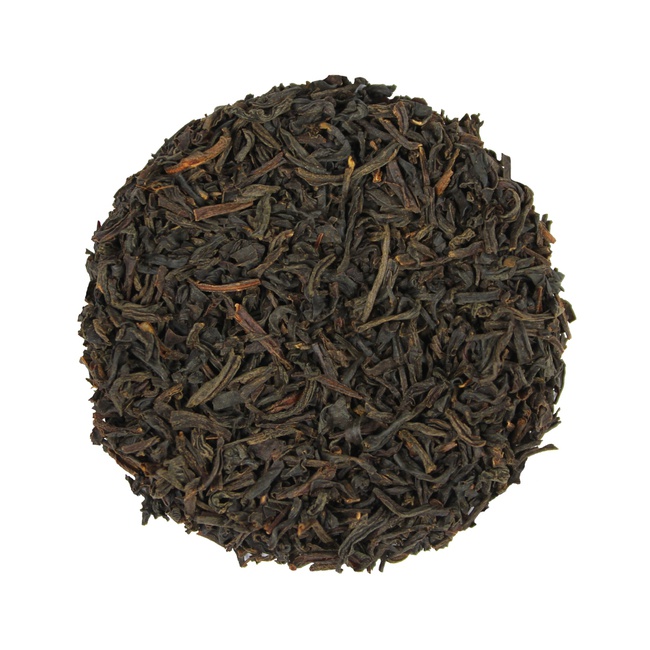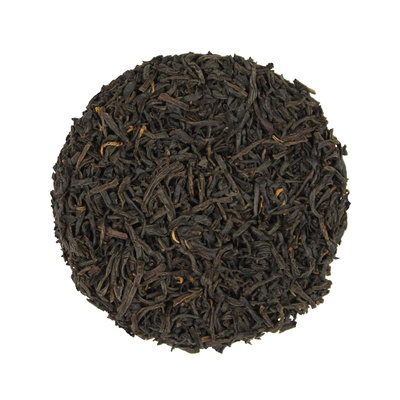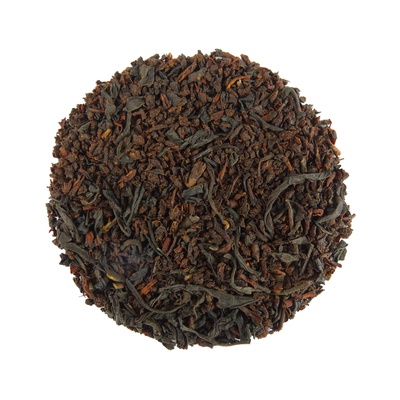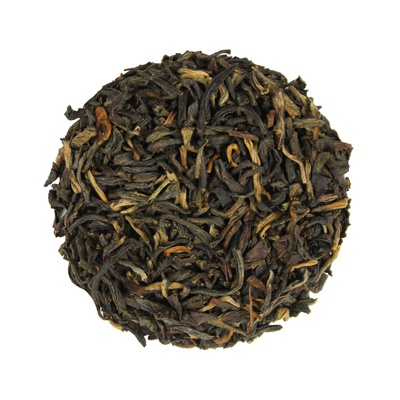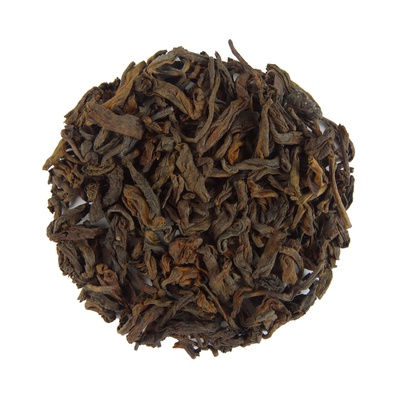KEEMUN EXTRA CHOICE LOOSE TEA
MEDIUM-STRONG
Murchie's Keemun Extra Choice is a mild, pure China black tea. Naturally low in caffeine, smooth and mild, yet with a full body and a slightly smoky aroma.
Keemun teas are from Qimen County, Anhui Province. They are known for delicate, finely rolled leaves, and complex layers of flavour, which may include fresh or dried fruit, wine, nuts, vanilla and a hint of smoke in a very smooth cup.
| Keemun Extra Choice - Loose 2oz/56g |
$7.6510% off |
|
| Keemun Extra Choice - Loose 4oz/113g |
$13.3710% off |
|
| Keemun Extra Choice - Loose 8oz/227g |
$23.2710% off |
|
| Keemun Extra Choice - Loose 16oz/454g |
$42.2610% off |
|
The Anhui province of China is home of the original tea gardens. The soil and climate conditions create teas that are lower in tannic acid and caffeine than other fully fermented teas. Keemun black teas are known for their complex characters and are often referred to as the “Burgundy of Teas”.
| Caffeine | Caffeinated |
|---|---|
| Cup Strength | Medium-Strong |
| Origin | China, Single-origin |
| Tea Format | Loose Tea |
| Type | Black |
GOOD BASE Review by ['TRUGRAY']
I have used Keemun XC for years as the base of my breakfast tea which I actually drink all the day long, overbrewed for certain. I make a pot with a full rounded teaspoon of XC and add 1/2 tsp Victoria Blend, yummy and mild
Posted on 2021-01-27My Daily Ritual Review by Acuitea
Keemun, as I understand it, was the original English Breakfast tea (from an English perspective, of course), the prized tea enjoyed there in the early days of tea's European popularity. When the price of Keemun rose too high, the blend we know as English Breakfast was created to try and approximate the taste of Keemun. But this is the real deal. For over a decade, I have been enjoying Keemun. Once in a while, perhaps one in a hundred cups, there is a magic that I've never experienced in any tea before. The stars align, and suddenly there is a chocolatey, deep, rich flavour that is only hinted at in other cups. I chase that dragon constantly, making careful adjustments to the amount of tea, temperature of the water, how the tea is rinsed, steep time, covered or not, whether to let the tea drip into the cup or pot once removed or not, and on, and on. But I am not the master; Keemun is, and she shows her true self only when she wants. Other reviews I have read talk of hints of fruit (I taste plum) and subtle pine (don't know about that, but there's a complexity that I think it refers to). It is dark, but very unlike Pekoe, with a malty clean taste that isn't astringent. I have tried many suppliers, some straight from Anhui, the Chinese province Keemun is produced in. This Keemun from Murchie's is now my "go-to", a good balance of quality and price. Though I have paid many times more per cup, this seems to have all the character I desire, the same ratio of "perfect cups", and is reasonably priced for a quality Keemun. If you enjoy it, you should try their Superior variety as well to see if it tastes better to you, but at around twice the cost it should taste significantly better to justify constant daily use. The bagged version is a very poor substitute that is only good for travelling or work if you can't use loose tea. I won't bore you with the fine details of how I'm currently making it, but a very generously heaped teaspoon for four minutes won't be too far off my usual. Keemun doesn't do well with too little tea and takes on a terrible burnt character. Readers, if you know the magic, submit a review and let me know the secrets!!! And if you haven't tried this tea, you really should. Be emotionally prepared to order a pound a month after that.
Posted on 2020-07-30Write your Own Review
You're reviewing: Keemun Extra Choice Loose Tea
Also Recommended
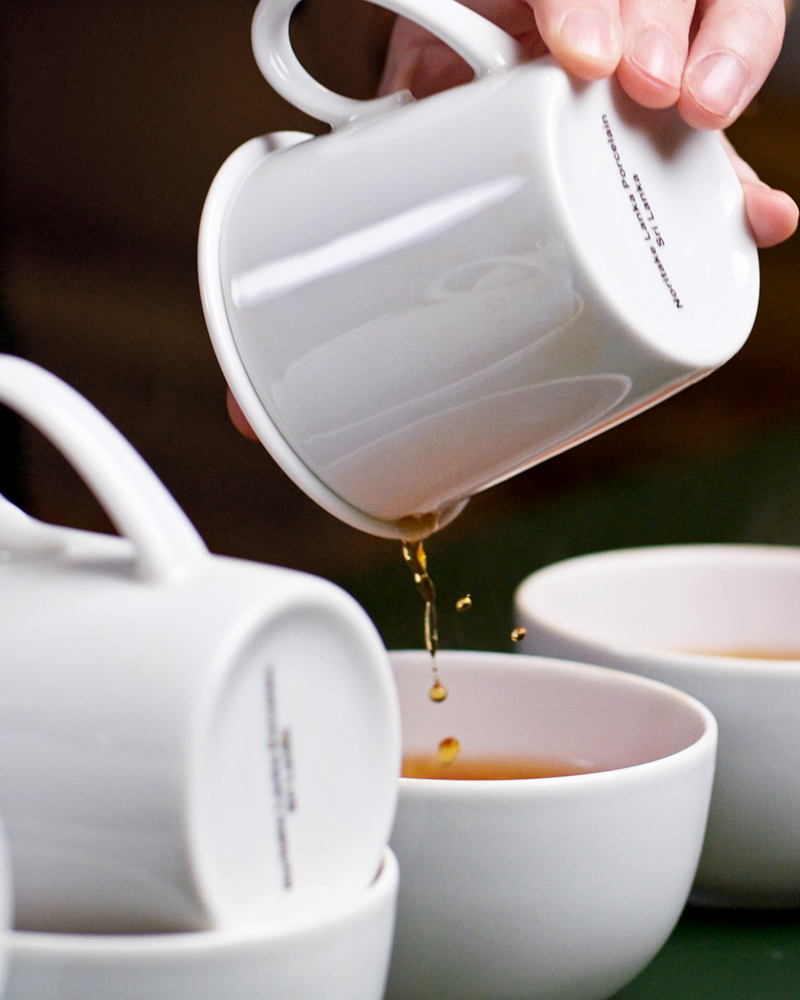
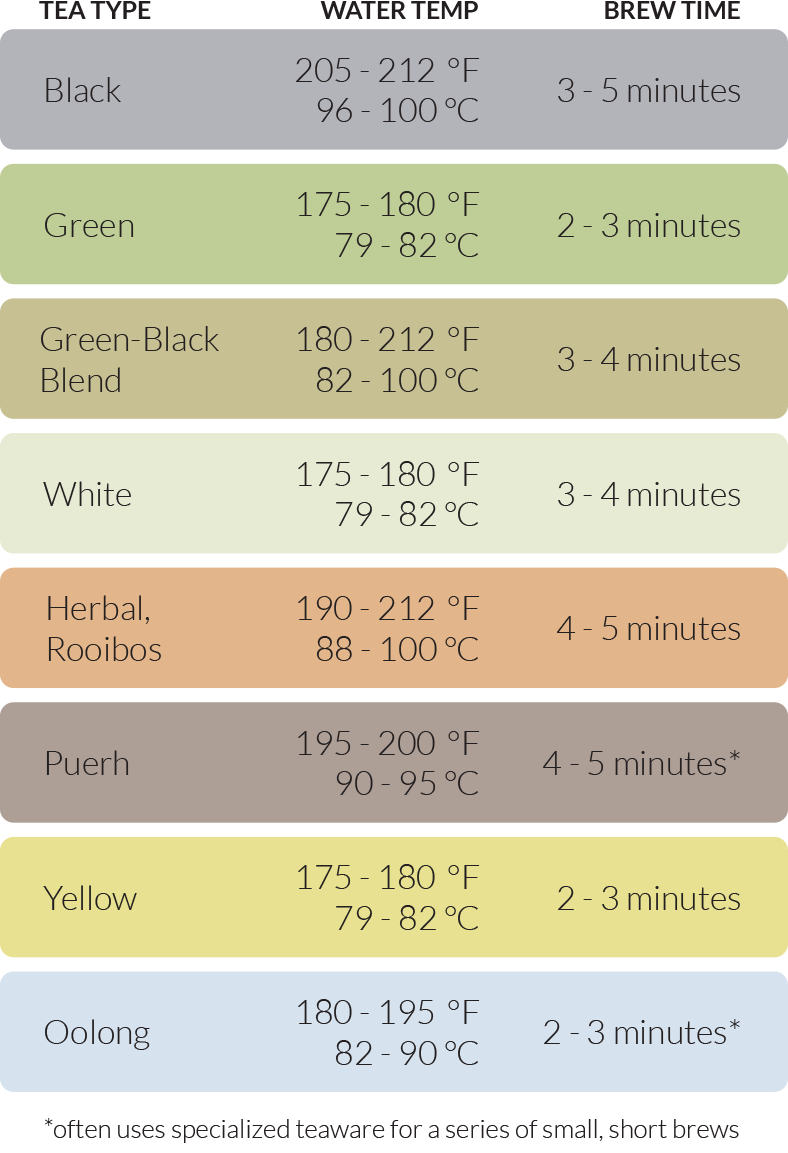
Steeping the Best (Guide)
Different types of teas should be steeped according to certain times and water temperatures to bring out their best flavours. Use this guide as a starting point, and then experiment until you find the perfect brewing method for your favourite tea.
Based on approximately one level teaspoon (2.5 g) of loose tea or one tea bag per 6-8 ounce (180-240 mL) cup. For stronger flavour, add more tea. Brewing for longer may increase the strength of the tea, but will likely also cause bitterness.
Tea Bags vs. Loose Tea
While our tea bags and loose tea are crafted to match the same flavour profile, there are discernable effects between the two formats. Namely, the leaves inside tea bags are milled, making it much finer and a quicker brew, while loose tea can take a couple minutes longer to steep. Tea bags are very convenient, but loose tea can be more visually appealing and brewed with a reusable infuser.
- Tea bags: steep for 3 - 4 minutes
- Loose tea: steep for 4 - 5 minutes
General Steeping Temperatures
The table included here shows some general guidelines for steeping different kinds of tea. Be mindful that some teas, even two from the same category, will brew differently than others. In particular, our green-black blends will often have different ratios of green and black teas - the more green-leaning ones should be brewed at a lower temperature range. Experimentation is highly encouraged, as tea is very much a matter of personal taste.
Puerh and oolong teas are often steeped multiple times for a shorter period of time in smaller brewing vessels. This method creates a curious exploration of the tea as it unfurls, developing new flavours with each subsequent brew - often making for great social conversation.
If you're unsure, try steeping in the middle range for your tea type. If the result is too bitter, steep at a lower temperature or for a shorter time. If the result is flat, try a higher temperature.
All About Iced Tea
Cold Brew - Recommended for green, fruit and herbal teas
A convenient way to make iced tea and forget it. Many teas take as little as 2 hours, but leave in the fridge for 24 hours for best results. Cold brews can last up to a week when refrigerated, with the exception of fruit teas (real fruit pieces) lasting up to a few days due to sugar content. Blueberry Green and Spring Green are excellent cold brewed.
- 1 teaspoon green or herbal tea per 1 cup cold water, refrigerate 1-24 hours
- 1 tablespoon fruit tea per 1 cup cold water, refrigerate 1-24 hours
Hot Brew & Chill - Recommended for rooibos, black, oolong, and green-black teas
Short on time? Make your hot tea at 2-3x the regular strength, then flash-chill over ice! A strong concentrate of tea can be diluted with ice to suit your tastes. Lemon Black, Black Currant and Canadian Breakfast do exceptionally well with this method.
- 2-3 teaspoons tea per 1 cup hot water, brew 5 minutes and pour over ice
Iced Tea Additions - Try adding fruit juice or soda water, or milk for an iced tea latte
For a refreshing twist, mix half lemonade or fruit juice, or add some fresh fruit or crushed mint. For an iced latte, make your tea extra strong and top it up with milk. Try this method with our Earl Grey or Bombay Chai!

